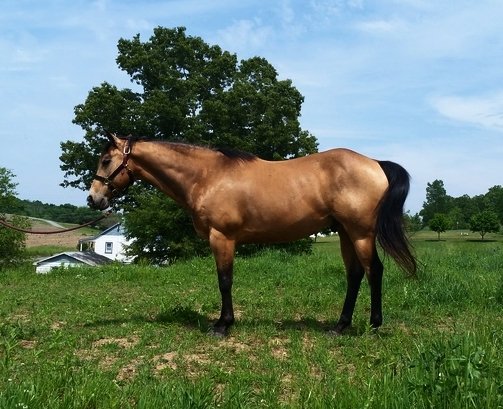

Owning a horse can be a very expensive endeavor. A half ton animal with a near suicidal propensity for self harm requires a great deal of food, maintenance, and–if you are particularly unlucky–vet bills. But there are ways to better afford a horse on a tight budget.
1. Prepurchase exams are your friend
Do vet and farrier checks before you buy the horse. A little investment now will save you a lot of potential vet bills in the long run. A sound, healthy horse that doesn’t need monthly vets visits, weekly farrier appointments, custom shoes, massage therapy, acupuncture, several pounds of prescription-grade feed and supplements, and a special type of hay that has to be shipped in from three states away is going to burn through your paycheck awfully fast. Ok, maybe that was a little bit of an exaggeration…for some horses. However, if you’re on a budget the chances of you affording even one of those high maintenance options is slim. It is much cheaper to go with a thorough prepurchase exam.
Related Content: A Beginner’s Guide to Horse Buying
2. Learn the basics of barefoot hoof care and avoid shoes if possible
Some horses can’t go barefoot. But don’t put shoes on your horse if you don’t have to. Consider using boots when riding on trails or rocky surfaces. This will save you a lot of money each month and it won’t just be from the cost of the farrier. Putting all those nails in your horse’s hooves weakens the hoof over time and causes all kinds of problems that potentially lead to extra vet and farrier bills that might not have been necessary if the horse had been barefoot.
If you can transition your horse to barefoot, you may want to consider learning some of the basics of barefoot hoof care.
3. Pasture board
When looking for boarding options, stall board is often more expensive than pasture board. There are many added benefits as well. Horses were not meant to be stationary creatures. They evolved to move. Having the freedom to walk around a pasture–even a small one–keeps their blood circulating which leads to healthier hooves, joints, and muscles. Eating grass also cuts down on feed bills. Granted, you are still paying for that grass. But, the grass is often cheaper than hay and grain. It is also much healthier. Well taken care of grass that is fertilized according to the needs of the region in which it grows provides a naturally balanced diet for two thirds of the year in many parts of the world. A balanced diet leads to less demand for supplements for most horses.
4. Only supplement the individual minerals they need
Too many horse owners get suckered in by the feed companies touting this supplement and that supplement. They make all kinds of claims that you absolutely have to have your horse on a coat supplement, a joint supplement, an immune supplement, a hoof supplement, and the three type of the most expensive grain they can sell you. Guess what? If you are supplementing your horse without knowing where he is truly deficient and in need of supplementation you may be causing a lot of your own problems. Certain imbalances in your horse’s diet are dangerous. Supplementing willy nilly without truly knowing what your are shoving down your horse’s pie hole can having devastating long term consequences. That is not to say that all supplements are evil. But you need to do your research and know exactly what you are dumping into his feed pan. Here’s another shocker for some people: vets are not equine nutritionists. If your vet prescribes the same supplements to every patient, you probably shouldn’t take any more nutrition advice from them. You might be surprised how many vets take kickbacks from feed companies for pushing their supplements and special feed formulas.
Related Content: Supplements 101: 3 Supplements Every Horse Owner Should Know
Vets are not equine nutritionists. If your vet prescribes the same supplements to every patient, you probably shouldn’t take any more nutrition advice from them.
Tweet
5. Let them develop a full winter coat
Most horses don’t need blanketed over winter. If you keep your horse locked indoors under lights because you are showing in something that requires a sleek coat, you need to blanket your horse. Horses that are older, ill, or for some genetic reason don’t develop an adequate coat should also be blankets. However, most horse don’t need to be blanketed. As long as they have shelter from the wind and plenty of hay they should be fine. It is good to keep a no fill rain sheet around for particularly rainy days as getting soaked to the skin will negate the coat’s ability to keep the horse warm. But a healthy coat can withstand light rain and even snow just fine. You would be shocked how many times horses choose to abandon the shelter in favor of the open field during rain or snow. It is also good to keep a wool cooler around to help dry their coat out quicker if they do get wet and–if you live somewhere that occasionally gets below zero–a medium weight blanket for emergencies. However, if you let your horse maintain a natural coat, there is no reason to invest in a full array of blankets and sheets that your horse will only shred anyway.
6. Don’t take a credit or debit card into the tack shop
Yes, I went there. Do I really need to explain this one? If you are going to venture into the minefield that is any tack shop or other equine establishment that sell anything remotely related to horse care, horse riding, horse training, or horses in general, you might want to leave the credit and debit card at home. Take only the cash you need. It’s safer that way. If you want to double down on safety, take another responsible adult with you. That is to say, someone who will intervene as oppose to enable the sudden urge to spend that cash on something other than what you came for (and then run home to get the credit card).
7. Learn basic equine first-aid so you can better determine when a vet is actually necessary
Know when to call the vet. You don’t need to pay a $100 vet bill every time Sparky gets a stone bruise. A good vet will be happy to help you learn the difference between minor injuries, vet-worthy problems, and true emergencies. Invest in a well stocked equine first-aid kit, preferably two if you have a trailer so you have one in the barn and one for the trailer.
Related Content: 10 Things You Should Have in Your Equine First-Aid Kit
8. Find a vet and farrier who are not constantly pushing products and services on you that you don’t need
This goes right along with the vet prescribing supplements you don’t need. Don’t let the farrier convince you that your horse needs shoes just because that’s what all horses “need.” If he says your horse needs shoes, ask him why. If he can’t give a detailed answer of a specific problem that your horse has that can only be corrected by shoes, then it is time to seek a second opinion.
9. Learn to check your horse’s teeth because they don’t actually need floated as often as some vets say they do
Supplements and special feeds aren’t the only things vets will try to push on you unnecessarily. If your horse is on a high forage diet and not showing any signs of pain or discomfort in his mouth yet the vet insists his teeth need floated every year, you again need to seek a second opinion. I get my horses teeth checked every year. But, I have not once in my seventeen years with horses had a horse get his teeth floated. There were a few years that the teeth were “borderline,” but the horse showed no signs of discomfort, so we let the teeth be. We just tinkered with the diet a bit to up the amount of forage he was a getting and by the next year the “borderline” points were gone.
10. Go through your tack room and clean out everything that you haven’t used in the past year (NO EXCUSES)
We’re all guilty of this. Those saddles, bridles and bits just keep multiplying. I swear, those thing breed. You want to save money? Go through that tack room and sort everything into two piles; the “have used in the past year” and the “have not used in the past year.” Yes, you know what I’m going to say next. I can hear the whining and excuses from here. All that stuff on the “have not” pile needs to go. Put it on eBay or take it to your nearest tack consignment store. If you can’t bear to do that, recruit a friend, family member, or significant other for moral support.
Related Content: 4 Items in Your Tack Room That Can be Repurposed









